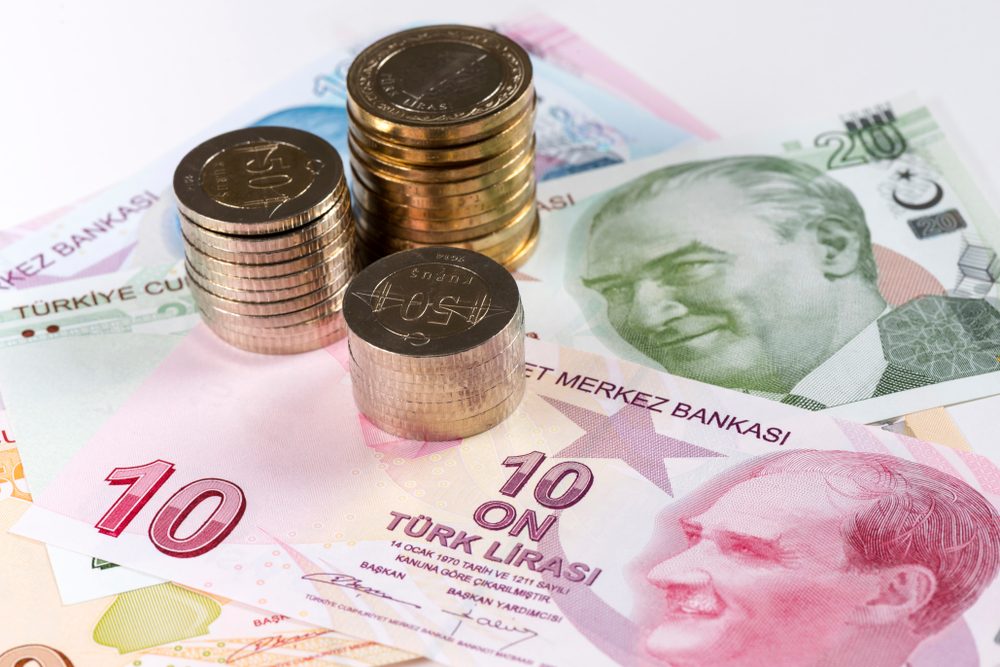
Concerns about Turkey’s financial crisis once again weighed on investor appetite on Wednesday despite the lira’s continued move away from its all-time low against the dollar. Whilst the lira might have found some much needed respite, other emerging markets suffered as investors pulled their money out of the these markets for fear that those with poor financial positions, might follow in Turkey’s footsteps.
Such withdrawals have hurt the emerging market currencies with the Indian rupee and Argentine peso hitting new historic lows gains the US dollar. This lack of investor appetite conversely saw the dollar index reach a 13-month high on Wednesday as funds pulled from those riskier assets found themselves a home in the safe heaven that is the dollar.
Understandably, markets are looking for an end to this crises at the moment but with rhetoric this week from Turkey heating up in the form of boycotts against US electronic goods, investors are right to be concerned.
The only thing we can be certain on right now is that global uncertainty is likely to continue until some form of resolution is found between the USA and Turkey.
As such, anyone exposed to foreign cash flows face amplified risk over the coming period and should seek an effective risk-management strategy in order to safeguard their budget. In these uncertain times, it is worth to take a look at our Treasury Management White Paper and contact our trading team.
GBP: inflation data disappoints
Sterling continued its decline yesterday as UK inflation data underwhelmed the markets. Although the July consumer price index rose in line with expectations from 2.4% to 2.5%, many analysts were hoping for a more impressive number to help lend support to the pound given its weakness. This would have come in the form of expectations around a future interest rate rise but with mixed data, Brexit and global risk so prevalent, this is now looking highly unlikely in 2018.
Looking to today, eyes will be on the UK’s retails sales to gauge the health of the high street and consumer spending. Last month’s print saw a surprise month-on-month fall of 0.5%, a positive number will be very much needed to promote confidence in the allied retails sector. Expectations are for a positive increase of 0.2%.
Whatever retails sales might bring, with inflation and wage growth figures behind us, sentiment around the UK and the pound are likely to be dominated by the ongoing global events.
EUR: the euro playing second fiddle to the dollar
The euro extended losses on Wednesday against the dollar, hitting a fresh 13-month low in light of the dollar strength and fears over the European banking sector’s exposure to Turkish debt.
In a bid to calm markets, one of the members of the ECB’s banking supervisory board, said investors shouldn’t “over dramatise” the risk to the European banking sector as the ECB could always ask exposed banks to put more capital aside. This clearly did little to calm markets yesterday with one possible explanation being that Italy’s government is rumoured to be concerned about the impact of Turkish write-downs on the Italian banking system as a result of its vulnerability to a crisis.
USD: strong economic data underpins sentiment around the dollar
The dollar continued its march yesterday as contagion fears continued to rain in markets and US retail sales recorded a strong month-on month-growth of 0.5% against 0.1% expected. Other data on Wednesday showed worker productivity growing at its fastest pace in more than three years in the second quarter.
Overall, strong domestic demand supports expectations the Federal Reserve will raise interest rates in September for the third time this year, further fueling the dollar strength already being experience by its safe haven status.
For more on currencies and currency risk management strategies, please get in touch with your Smart Currency Business trader on 020 7898 0500 or your Private Client trader on 020 7898 0541.

 020 7898 0500
020 7898 0500